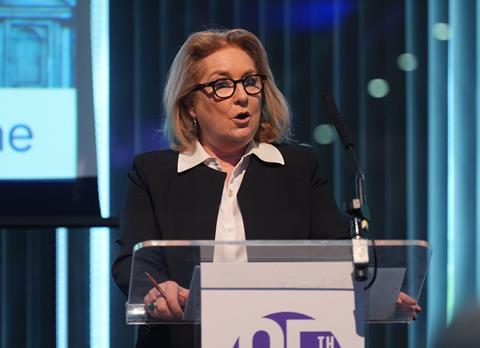A new judge-led Transparency and Open Justice Board is to 'examine and modernise our approach to open justice', the lady chief justice said this week, stressing the importance of courts being open to the press. Addressing the Society of Editors, Baroness Carr of Walton-on-the-Hill promised to ensure journalists 'have the tools to scrutinise the justice system effectively'.
However she repeated her predecessors’ concerns about personal attacks on judges, stating that 'playing the man or woman but not the ball' is not acceptable.
The new board, chaired by Mr Justice Nicklin, head of the media and communications list, will set objectives for all courts and tribunals, the lady chief justice said. It will focus on 'timely and effective access in terms of listing, documents and public hearings', replacing the piecemeal approach to open justice currently taken by individual jurisdictions. It will be looking in particular at what can be done to increase public and media access. That our courts are open to the press is as important as being open to the public.’

Commending the work of journalist Nick Wallis, who uncovered the Post Office scandal, and broadcaster and Gazette columnist Joshua Rozenberg, Carr said: 'The judiciary and media share a common duty: we are and must continue to be the guardians of open justice. The greatest threat comes not from direct attack on the principle, but rather from careless – sometimes inadvertent – failures to protect its ideals. I intend the judiciary to step up, continuing to play our important constitutional role of protecting and promoting open justice as an essential element of the rule of law.’
However the lady chief justice spoke cautiously about expanding the broadcasting of court proceedings. 'We will need to consider the effect that expansion may have on the parties to proceedings and, particularly, on any adverse effect it may have on the administration of justice, public trust, and confidence in the courts,' she said. She also noted that more broadcasting of proceedings would require changes in legislation.
While welcoming robust discussion of unpopular rulings, she warned: 'It is, in those cases... all the more important not to fall into the trap of playing the man or woman but not the ball. It is all too easy to target judges, their private lives or their families, to make personal criticisms of them arising from their judgments when what they are doing is conscientiously and properly giving effect to their judicial oath.
'Simply put, such an approach is not acceptable. Judges are entitled to respect for their private lives, like anyone else. And as importantly, such an approach does nothing to advance public debate on the issues.'
This article is now closed for comment.



























6 Readers' comments